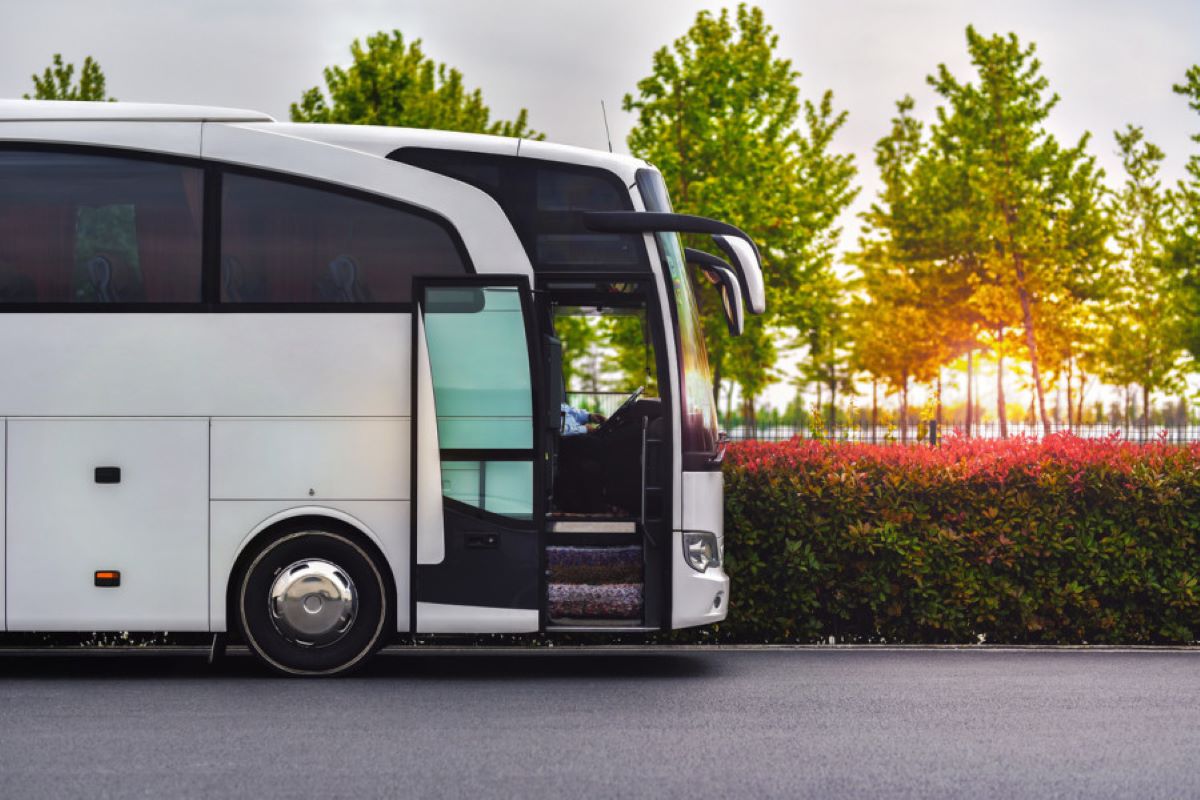If you look for directions from Washington, D.C. to Virginia’s Shenandoah National Park on Google Maps, it will chart a route for your car down to the minute. If you try to find that same route via public transit, you don’t get a detailed route, or any route at all -- you get an error message. This isn’t a glitch. It’s an all-too-common problem that prevents many from getting outdoors.
When we talk about barriers to accessing public lands, common culprits include expensive entrance fees, a lack of gear, or a lack of experience or perceived safety. While those barriers are real, they assume there’s a way you can get to the parks in the first place. What if you don’t own a car? For too many people, the barriers begin before they get out the door.
Nearly one-third of people in the U.S. live more than a 10-minute walk from a community park. Green space in our cities is distributed unfairly and inequitably due to years of racist land-use practices like redlining, which has left many frontline communities to disproportionately bear the brunt of environmental degradation like polluted air and water and the impacts of climate change like the urban heat island effect.
For many people, access to local parks and green spaces is further hampered or nonexistent due to the limitations of public transit. Many of our public lands are only accessible by private vehicles. However, the percentage of Black, Latinx, and lower-income families who do not have access to a car is more than twice as high as white and higher-income families. Without a car, it’s practically impossible for many communities to make the most of the health benefits and enjoyment provided by nature access.
With inadequate public transit, too many people are denied the positive benefits of spending time outdoors in nature. Studies consistently show that time spent outdoors has a positive impact on physical and mental health, and one study showed that even 20 minutes spent in a park can help a child concentrate better in school. As we begin to emerge from the COVID-19 pandemic, we will need the benefits that nature bestows more than ever, and right now they’re inaccessible to too many people.
A bill working its way through Congress could help jumpstart the process of dismantling these barriers and bring the benefits of nature to those who have been denied them for so long. The Transit to Trails Act, sponsored by Senator Cory Booker (D-NJ) and Representative Jimmy Gomez (D-CA), would direct millions of dollars to support expanding transit links between our public lands and green spaces and our communities nationwide. If this bill is passes, it would be an important step towards making sure our public lands -- national parks, monuments, forests, seashores, wild & scenic rivers, historic sites -- aren’t exclusively the domain of people with the means or desire to own a car.
Passing the Transit to Trails Act would be a milestone achievement, but our efforts can’t stop there. We need not only to ensure that our public lands are more accessible, but also to ensure that all people have access to nature and green spaces near their homes, and clean and affordable transportation, and a liveable planet that belongs to all of us.
The Sierra Club’s Clean Transportation for All campaign is working to improve options for zero-emission public transit powered by renewable energy, as well as changing land use for more transit-accessible communities. Our Sierra Club Outdoors for All campaign is working to ensure that everyone can access the healing power of the outdoors, because access to nature is a human right. We’re united in working to ensure that everyone, not just people of privilege, can experience the outdoors through affordable, accessible, and reliable transit.
Access to parks and green spaces without owning a car is a problem, but it’s a problem with a clear solution. We play a pivotal role in developing sustainable and just solutions necessary to stop the climate crisis, the biodiversity/extinction crisis, and damage to our public lands and waters. Upgrading our public transit systems, from increasing the number of routes to using pollution-free buses,will help millions more people all across the country to access the healing power of the outdoors, while simultaneously slashing carbon emissions in the process, distributing the benefits of nature more equitably as we take on one of the greatest challenge of our time.
